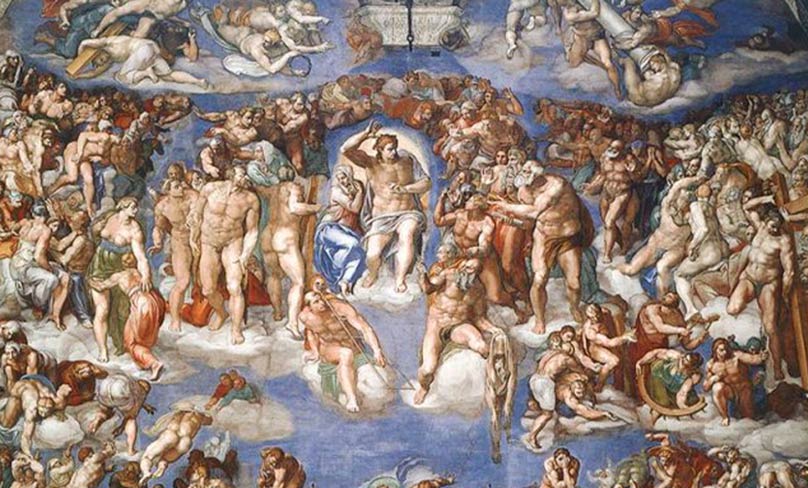
Dear Fr John Flader, I have always wondered whether the saints in heaven feel any sadness or pity for the souls in hell. Can you help me?
First of all, we should ask whether the saints in heaven are even aware of the suffering of the damned in hell.
Naturally, we will know the definitive answer to this question when we get to heaven ourselves. But in the meantime, St Thomas Aquinas gives us an answer in his Supplement to the Summa Theologiae.
In the first article of question 94 he raises the question “Whether the blessed in Heaven will see the sufferings of the damned?” He answers with a quote from Isaiah, where God says:
“And they shall go forth and look on the dead bodies of the men that have rebelled against me; for their worm shall not die, their fire shall not be quenched, and they shall be an abhorrence to all flesh” (Is 66:24).
St Thomas quotes a gloss on this passage which says: “The elect will go out by understanding or seeing manifestly, so that they may be urged the more to praise God.”
“Nothing should be denied the blessed that belongs to the perfection of their beatitude. Now everything is known the more for being compared with its contrary, because when contraries are placed beside one another they become more conspicuous,” St Thomas wrote.
“Wherefore in order that the happiness of the saints may be more delightful to them and that they may render more copious thanks to God for it, they are allowed to see perfectly the sufferings of the damned.”
That is, the saints in heaven will appreciate more their own happiness, and give greater thanks to God for it, when they compare it with the great suffering of the damned in hell.
St Thomas adds that while “it is not necessary that they [the saints in heaven] should know by natural knowledge all that happens to the living”, whether on earth or in hell, they do “know distinctly all that happens both to wayfarers and to the damned.”
So the saints do know the suffering of the damned as well as what happens to people on earth.
But if they are aware of that suffering, surely they must feel pity or sadness in some way. To apply a human analogy, if we ourselves see someone suffering here on earth, we are naturally moved to feel pity for them.
St Thomas addresses this question in the second article of question 94 in the Supplement.
In his usual way, he begins by formulating objections to what will be his final answer. The first objection is an obvious one:
“It would seem that the blessed pity the unhappiness of the damned. For pity proceeds from charity; and charity will be most perfect in the blessed. Therefore, they will most especially pity the sufferings of the damned.”
St Thomas adds a second objection: “Further, the blessed will never be so far from taking pity as God is. Yet in a sense God compassionates our afflictions, where he is said to be merciful.”
With these observations, it would seem obvious that the blessed in heaven would feel pity for those in hell.
But no, St Thomas says, they will not feel pity: “Whoever pities another shares somewhat in his unhappiness. But the blessed cannot share in any unhappiness. Therefore, they do not pity the afflictions of the damned.”
We understand that the blessed should not be unhappy but how can they know that the damned are suffering and yet not feel any pity?
St Thomas explains that a person can experience compassion in two ways: as a passion, or emotion, in the lower powers of the person, and as a choice of one’s reason.
There can be no passion, he says, presumably because a spiritual soul cannot feel emotions. So compassion would have to come from a free choice. This happens, according to St Thomas, “when a person wishes another’s evil to be dispelled.”
He explains that when we are in this life and we see a person suffer, we can wish that their suffering be removed. But when the person is in hell where the suffering cannot be removed, “it will not be possible to pity their sufferings according to right reason. Therefore, the blessed in glory will have no pity on the damned.”
St Thomas goes on to explain that the reason why the saints cannot wish that the suffering of the damned be removed is because it would be contrary to God’s justice.
